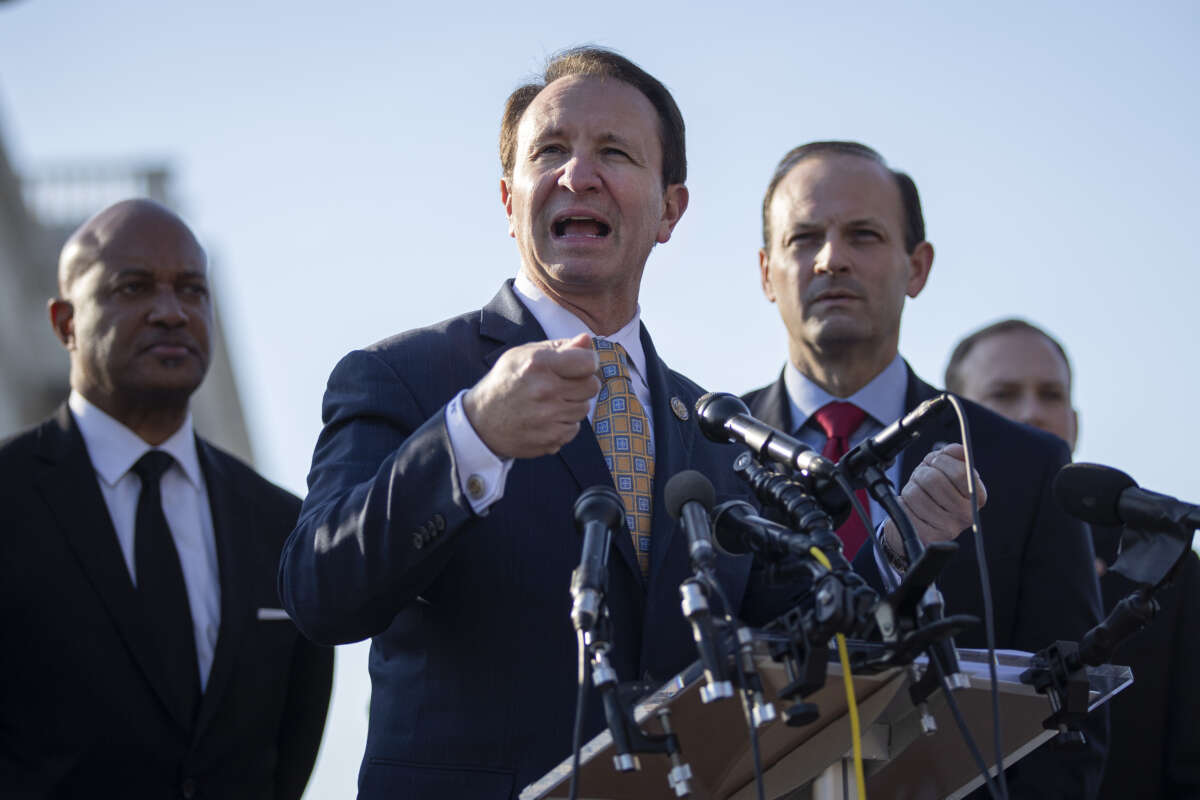Did you know that Truthout is a nonprofit and independently funded by readers like you? If you value what we do, please support our work with a donation.
On Thursday, Louisiana lawmakers passed a bill that would force transgender people to use facilities based on the sex they were assigned at birth. If signed into law, the bill will affect the estimated 20,000 transgender people who live in Louisiana.
“This bill represents a deeply troubling attempt to deny the humanity and dignity of an already vulnerable population by seeking to eliminate legal recognition of gender identities beyond the binary,” SarahJane Guidry, executive director of Forum for Equality, said at a committee hearing.
This bill, House Bill 608, not only affects school restrooms and changing rooms but also mandates that people in prisons and domestic violence shelters use bathrooms and sleeping quarters based on the sex they were assigned at birth. House Bill 608 also creates a course of action for people who feel like they have suffered from a violation of the law to bring a legal claim for injunctive relief and monetary damages.
“This bill will only create more fear in the transgender community about bathrooms,” said Peyton Rose Michelle, executive director of Louisiana Trans Advocates. “As a trans person who utilizes public bathrooms…I already get nervous about it.”
The bill now heads to Gov. Jeff Landry (R) for signature. While Louisiana’s previous governor, John Bel Edwards (D), vetoed several anti-LGBTQ bills last year, Landry has backed numerous anti-LGBTQ measures, including two that limit discussions of gender and sexuality in K-12 schools, and is likely to sign the bill into law.
“If signed, Louisiana will join other extreme states in banning transgender people from bathrooms matching their gender. While the bill primarily targets correctional facilities, public schools, and domestic violence shelters, its effects will be more far reaching than that as it allows for any entity to have a bathroom ban,” LGBTQ legislative researcher Allison Chapman told Truthout. “While it’s not surprising, I’m appalled at the passage of the bill and will be adding Louisiana to the states I cannot travel to as a trans woman.”
Currently, eleven states prohibit transgender people from using bathrooms and facilities — such as locker rooms, shower rooms, changing rooms and other sex-segregated spaces — that align with their gender identity in certain locations. These include government-run buildings like K-12 schools, city halls, courthouses, state legislative buildings, colleges or universities, jails or prisons, and, in some cases, airports and public parks. Additionally, two states — Florida and Utah — make it a criminal offense in certain circumstances for transgender people to use bathrooms or facilities that align with their gender identity.
The bill would require that domestic violence shelters in Louisiana turn transgender people away from shelters that match their gender identity, which LGBTQ advocates say would put transgender people, who face elevated levels of domestic violence, at a higher risk of danger.
“Additionally, by forcing trans people, who already face high rates of domestic violence, into shelters that do not match their gender identity the state will be subjecting trans people to additional trauma and potentially additional violence,” Chapman said.
Media that fights fascism
Truthout is funded almost entirely by readers — that’s why we can speak truth to power and cut against the mainstream narrative. But independent journalists at Truthout face mounting political repression under Trump.
We rely on your support to survive McCarthyist censorship. Please make a tax-deductible one-time or monthly donation.
